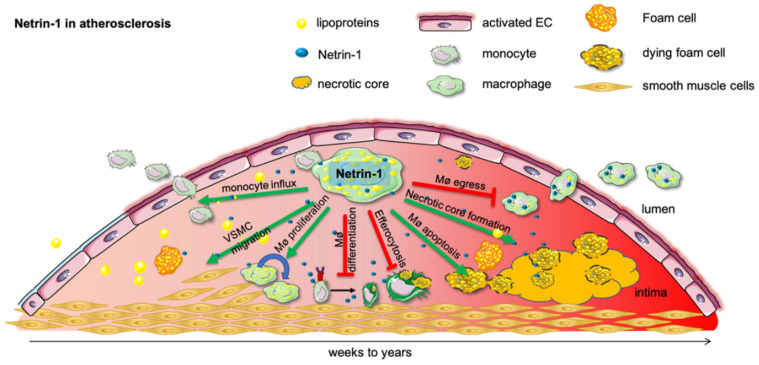Figure 2.
Netrin-1 in atherosclerosis. Subendothelial lipoprotein accumulation incite a proinflammatory activation of the endothelial cells and promote monocyte influx into the developing atherosclerotic plaque. As lipoproteins undergo various modifications, such as oxidation and hydrolysis, they are taken up by monocytes and form proinflammatory foam cells. In this inflammatory milieu chronically, activated macrophages secrete netrin-1, which recruit further monocytes and retain macrophages in the tissue until they undergo apoptosis and form the detrimental necrotic core. Netrin-1 further mitigates pro-resolving macrophage differentiation and efferocytosis. Moreover, netrin-1-secreting macrophages advance the plaque further by recruiting smooth muscle cells into the developing plaque, which can themselves become macrophages and promote the ongoing progression of the plaque.

